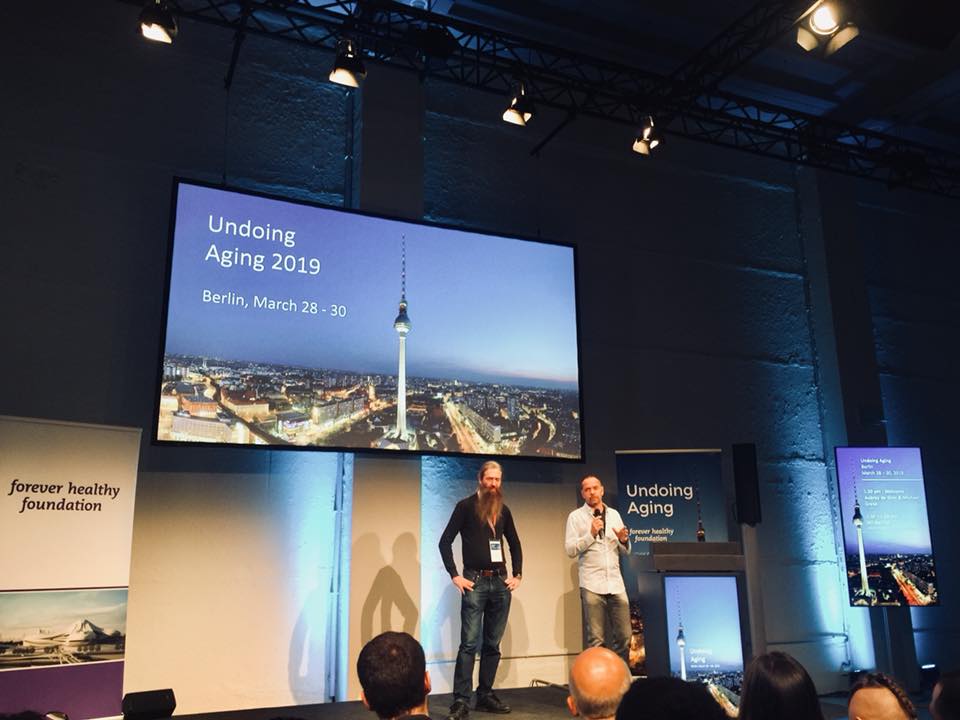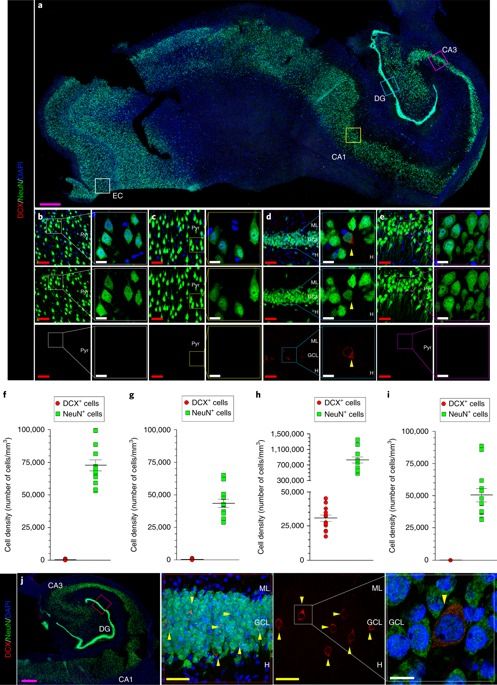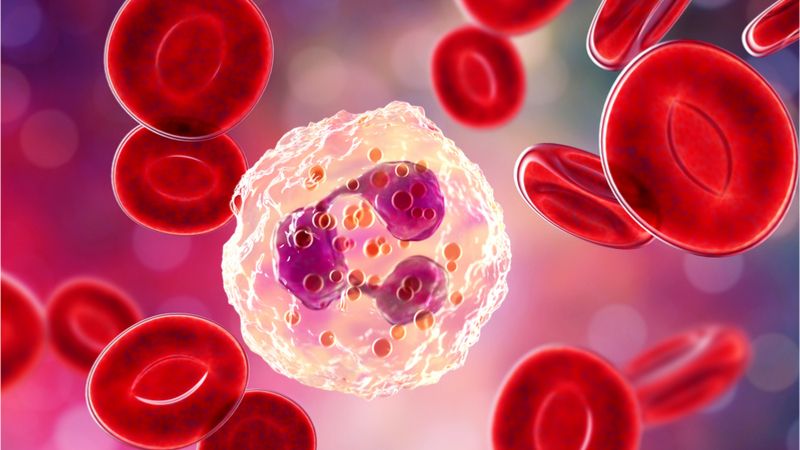Category: life extension – Page 536

Program: 2019 is on the horizon
It will be our second conference totally focussed on the science of actual human rejuvenation therapies to repair the damage of aging.
We are happy to begin introducing the speakers, starting with Dr. Jerry Shay.
Dr. Shay is the Vice Chairman of the Department of Cell Biology at The University of Texas Southwestern Medical Center in Dallas. Dr. Shay´s work on the relationships of telomeres and telomerase to aging and cancer is well recognized.
“Jerry has been a stalwart supporter of the SENS concept for well over a decade, and a world leader in the telomere biology field for much longer than that. He spoke at the very first SENS conference, back in 2003, and it will be a joy to welcome him again.” says Aubrey de Grey.

Program: We are happy to announce Dr. Judith Campisi as a speaker for the 2019 Undoing Aging Conference
At Lawrence Berkeley National Laboratory and at the Buck Institute for Research on Aging, Dr. Judith Campisi established a broad program to understand the relationship between aging and age-related disease.
Judith Campisi says: “Aging research has entered an era of unprecedented hope for interventions that can prevent, delay and, in some cases, reverse much of the functional decline that is a hallmark of aging. There is still a lot of research to be done! I am delighted to be among the speakers at Undoing Aging 2019, where I will discuss the opportunities and challenges of our recent research.”
“Judy has been a towering figure in the field of senescent cells for decades; among other things she pioneered the idea that senescent cells could be actively toxic to their environment and the discovery that cell senescence has a beneficial physiological role in wound healing. She was also one of the first senior gerontologists to appreciate the merits of the SENS approach when I first proposed it in 2000, and her support for it and us ever since has been of incalculable benefit in helping it achieve the mainstream status it enjoys today.” says Aubrey de Grey.

Program: The 2019 Undoing Aging Conference will again include poster sessions
In addition, a small number of posters will be selected for oral presentation.
Poster topics should lie within the scope of the conference: Research contributing to the eventual postponement of age-related decline in health, with an emphasis on measures that repair damage rather than slowing its creation. Poster submissions are due on January 31, 2019.
To submit your poster go to:

The Pursuit of Immortality, Regeneration & Longevity
Join us at 7pm tonight!
Neal vanderee officiator at the church of perpetual life.
The pursuit of immortality, regeneration & longevity.
Gabriel Rothblatt will join us with his presentation: “What is Terasem? The pursuit of Joyful Immortality.”
Anand Patel will give a presentation on

SXSW: These two futurists want to freeze your body after death and replace your brain
You might think we’re not in Texas anymore but in some strange episode of Black Mirror, the Netflix series, says Nikos Acuna who is moderating this SXSW panel on transhumanism.
In fact you’d be forgiven if you did as there is talk about cryo-preserving the body after being declared dead, in the hopes you can be resurrected when the science is here to safely defrost your body and cure you of your ailments. There is also talk on mind uploading, and replacing parts of our brains with neural prosthetics. This all sounds like science-fiction but these days the stuff of science fiction has become fact.
Transhumanist technologies are about overcoming the limitations of human biology and Dr Max More and Dr Randal Koene are at the forefront of these technologies.
3 Reasons Why “Ending Suffering” Should Be the #1 Transhumanist Priority – Article
BY HANK PELLISSIER
Hank Pellissier
Editor’s Note: The U.S. Transhumanist Party / Transhuman Party features this proposal by our member Hank Pellissier for a new website called Paradise2040, which will focus on the abolition of involuntary suffering and incremental ways of getting there within the next 21 years. This is an endeavor supported by Article IV of the Transhumanist Bill of Rights, Version 3.0. It is also a current within transhumanist thinking that, as Mr. Pellissier points out, could bring additional support to the movement. Different transhumanists will have different views as to what the most important aims of transhumanism should be. As an organization that embraces pluralism and diversity of thought, the U.S. Transhumanist Party / Transhuman Party would encourage any of our members who agree with the direction Mr. Pellissier proposes to collaborate with him on the creation of the Paradise2040 website.
~ Gennady Stolyarov II, Chairman, United States Transhumanist Party / Transhuman Party, March 25, 2019
A survey I conducted in 2010 of 818 transhumanists identified “brain enhancement” as the #1 priority, with “maximizing” health and life extension as #2 and #3. The top three “values” of the U.S. Transhumanist Party (the Core Ideals) are #1) Life Extension, #2) “a cultural, societal, and political atmosphere informed and animated by reason, science, and secular values”, and #3) “to reduce and eliminate existential risks.”

Adult hippocampal neurogenesis is abundant in neurologically healthy subjects and drops sharply in patients with Alzheimer’s disease
https://paper.li/e-1437691924#/ https://www.nature.com/articles/s41591-019-0375-9
The hippocampus is one of the most affected areas in Alzheimer’s disease (AD). Moreover, this structure hosts one of the most unique phenomena of the adult mammalian brain, namely, the addition of new neurons throughout life. This process, called adult hippocampal neurogenesis (AHN), confers an unparalleled degree of plasticity to the entire hippocampal circuitry3,4. Nonetheless, direct evidence of AHN in humans has remained elusive. Thus, determining whether new neurons are continuously incorporated into the human dentate gyrus (DG) during physiological and pathological aging is a crucial question with outstanding therapeutic potential. By combining human brain samples obtained under tightly controlled conditions and state-of-the-art tissue processing methods, we identified thousands of immature neurons in the DG of neurologically healthy human subjects up to the ninth decade of life. These neurons exhibited variable degrees of maturation along differentiation stages of AHN. In sharp contrast, the number and maturation of these neurons progressively declined as AD advanced. These results demonstrate the persistence of AHN during both physiological and pathological aging in humans and provide evidence for impaired neurogenesis as a potentially relevant mechanism underlying memory deficits in AD that might be amenable to novel therapeutic strategies.

Chronic Inflammation Leads to Toxic NET Buildup
A new review discusses how neutrophils release toxic substances into the body under inflammatory conditions, detailing one of the ways in which chronic inflammation causes long-term damage.
Casting a deadly NET
As we age, we suffer from the ever-increasing chronic inflammation known as inflammaging. This persistent, smoldering background of low-grade inflammation harms wound healing and promotes multiple age-related diseases. Senescent cells, a weakened immune system, and chronic infections are all proposed to contribute to inflammaging.